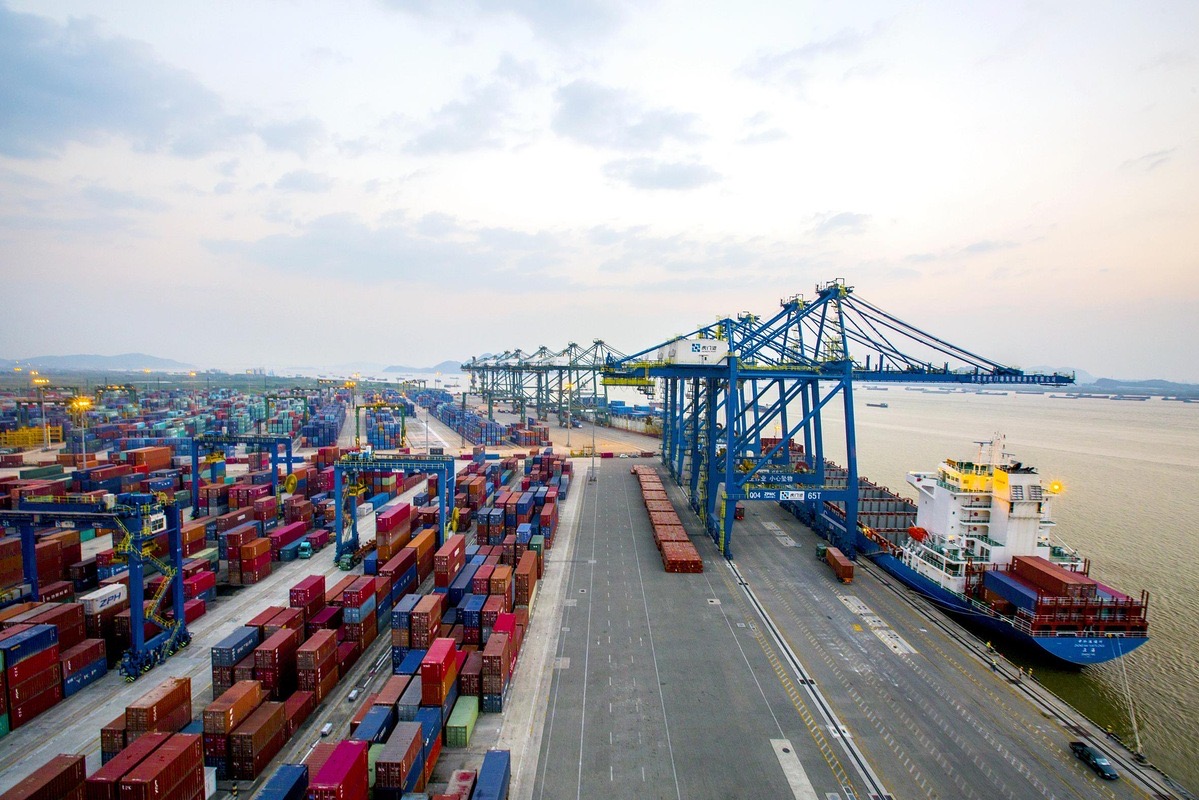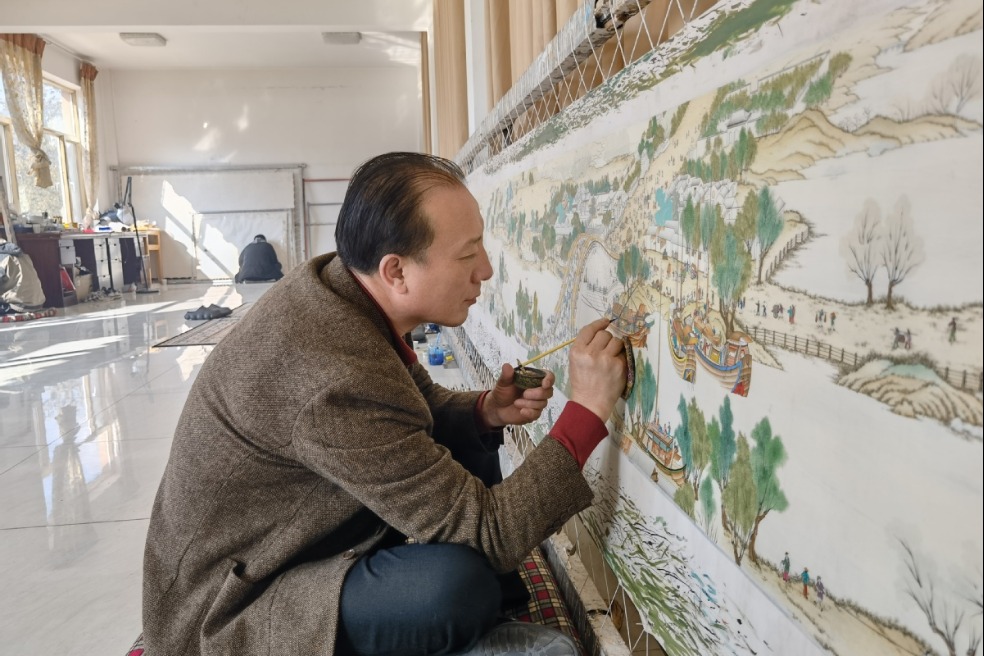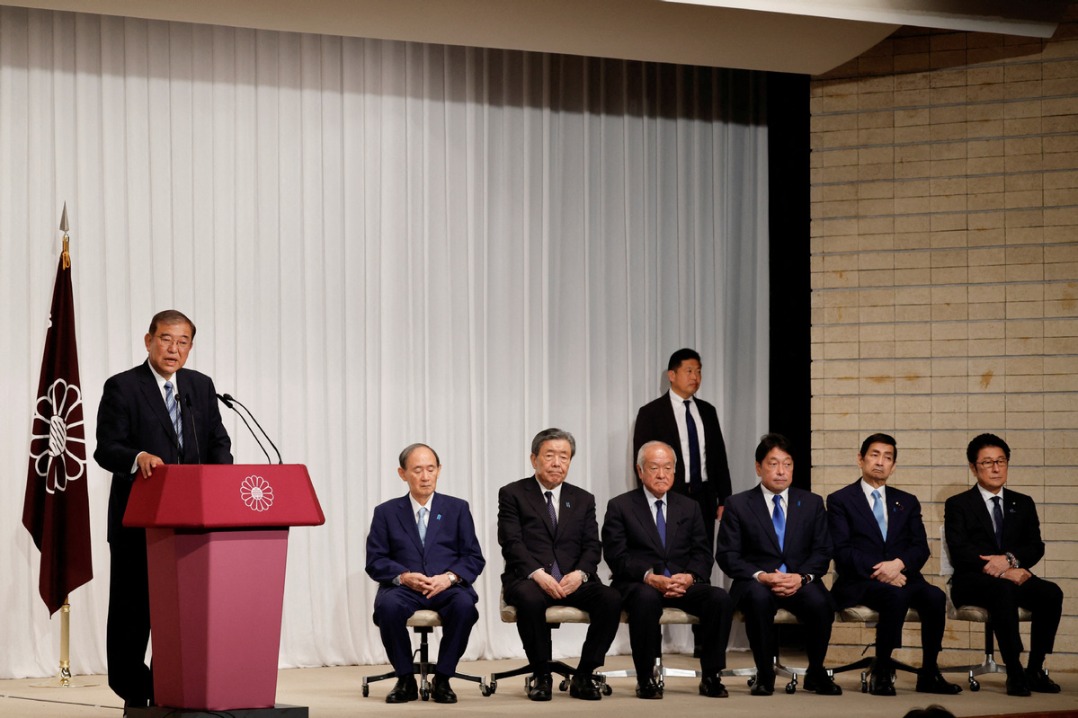Nation takes diverse global governance approach


President Xi Jinping's visionary idea of a community with a shared future for mankind, first raised in 2013, has generated substantial benefits for the entire world.
Nowadays, China continues its unwavering pursuit through the implementation of the Global Development Initiative, the Global Security Initiative and the Global Civilization Initiative, in addition to the Belt and Road Initiative, all of which were proposed by President Xi and align with the global vision of the Communist Party of China.
Rooted in China's modernization history and cultural legacy, the concept of a community with a shared future embraces the values of lasting peace, common security, common prosperity and building an open and inclusive, clean and beautiful world. It also underscores the dual commitment of advancing China's development while contributing significantly to the well-being of humanity with harmony among humans and with nature.
The Global Development Initiative places a high priority on inclusive partnerships, people-centered development and tangible initiatives to accomplish the United Nations' Sustainable Development Goals.
China strongly addresses global issues like food security and poverty reduction with cooperation from more than 100 nations.
The Global Security Initiative opposes zero-sum approaches and emphasizes common security via dialogue. China is fully committed to supporting UN peacekeeping efforts, resolving disputes and tackling nontraditional security issues.
The Global Civilization Initiative combines achievements from many diverse civilizations, reflects China's commitment to shaping a world characterized by peace, development, equity, justice, democracy and freedom, and advocates the evolution of civilizations and people-to-people exchanges and intercivilizational cooperation.
What sets China's approach apart is the symbiotic relationship of the initiatives, especially between the Global Security Initiative and the Global Civilization Initiative.
The acknowledgment of the inherent connection between international security and cultural narratives is underscored by the integrated character of these endeavors. China recognizes, in essence, that in order to promote a more secure and stable world, it is necessary to address traditional security concerns through the Global Security Initiative as well as to recognize — as stressed by the Global Civilization Initiative — the critical role that cooperation and cultural understanding play in attaining permanent global harmony.
This integrated approach represents an in-depth understanding of the intricate processes shaping global governance, whereby traditional security measures coexist with cultural diversity and mutual respect. Together, the efforts offer a complete framework that goes beyond simple policy issues and demonstrates China's commitment.
The Global Security Initiative prioritizes respecting national sovereignty, opposing unilateralism, encouraging dialogue over confrontation, and ensuring shared, comprehensive, cooperative and sustainable security. It promotes stability on a global scale by addressing both conventional and nontraditional security domains. Through talks, contributions to peacekeeping and mediation of regional disputes, China's role in preserving international peace is underlined.
The Global Civilization Initiative, on the other hand, advocates respecting the continuity and evolution of cultures as well as common human values and varied civilizations. To create an international network for intercivilizational discourse, closer international people-to-people exchanges and cooperation are encouraged. China's worldwide partnerships and cultural diplomacy initiatives all demonstrate its dedication to mutual advancement.
The world community applauds these measures for demonstrating China's powerful global vision, offering complete solutions, and aligning with global goals. The Global Development Initiative is in line with the UN's Sustainable Development Agenda, cooperative security is bolstered by the Global Security Initiative, and cultural variety and discourse are encouraged by the Global Civilization Initiative. Together, these initiatives represent China's will to create a global community that values equitable development, all-encompassing security and the enrichment of cultural and ethical values.
As the world becomes increasingly interconnected, the importance of cultural understanding cannot be overstated. China's deliberate efforts to project a positive and multifaceted cultural image contribute to a more comprehensive global discourse, challenging stereotypes and fostering an environment of mutual respect.
The strategic choices reflected by the Global Security Initiative and the Global Civilization Initiative have far-reaching implications for China's evolving stance on the global stage. As China actively contributes to international security efforts, it positions itself as a responsible and reliable partner in addressing global challenges. Concurrently, by showcasing its civilizational richness, China asserts its unique identity, fostering a narrative of a nation deeply rooted in traditional well-being for all mankind and actively contributing to the shared future of humanity.
These two initiatives also offer a blueprint for a nation seeking rejuvenation in the ever-changing landscape of global security and cultural dynamics. Beyond geopolitical considerations, China navigates a path that promotes global cooperation and cultural confidence, while rejecting exclusive security paradigms.
China takes a diverse approach to global governance, shaped by diplomatic traditions and an unwavering commitment to peace, prosperity and mutually beneficial cooperation. As it embraces its rich cultural legacy on the global scene, it has transformed into a cultural leader as well as an economic giant, advancing a world community characterized by enduring peace, security and prosperity for all.
The author is editor-in-chief of the Observer Diplomat magazine in Pakistan.

































